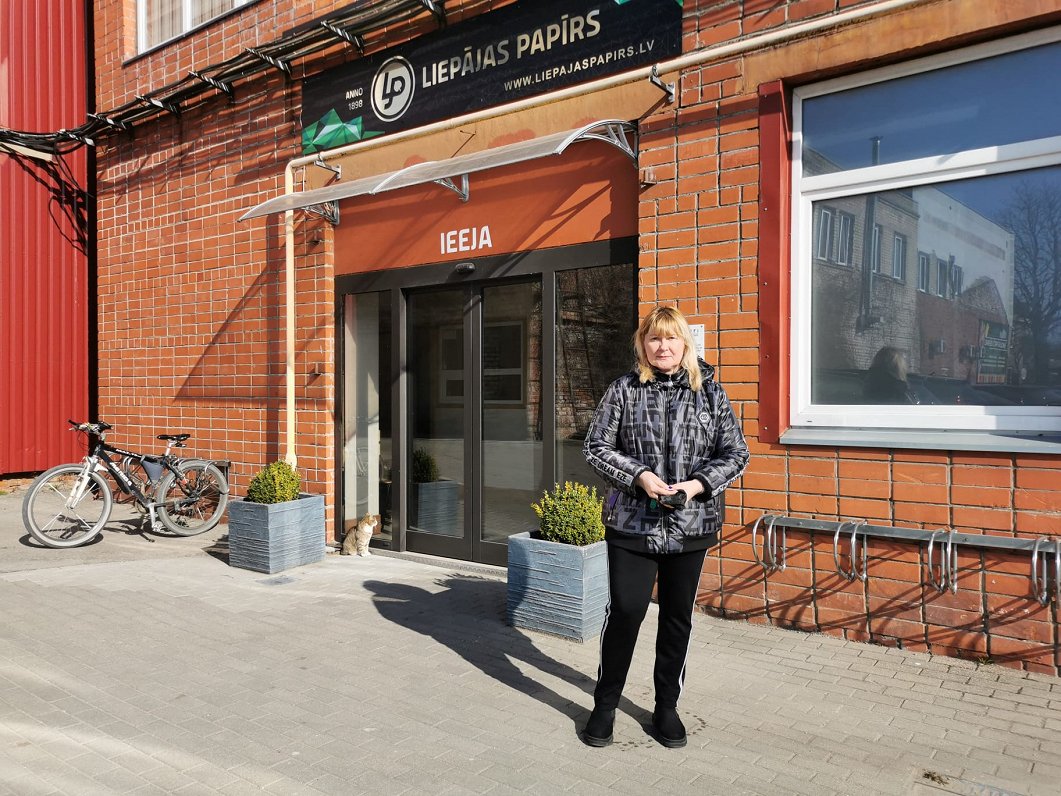Irina is just one of around 700 refugees from Ukraine who have arrived in Latvia's third-largest city. Some are able to work immediately, others need psychological and other forms of help to counter the traumas of war inflicted on them by the Russian invasion and its brutality.
"We are now beginning to understand what it is like when warplanes fly, when there are tanks in the city and rockets fly overhead," Irina told Latvian Radio. She found it difficult to talk about what was happening in her homeland and started crying during the conversation.
One thing is quite clear – Irina wants to return home as soon as possible, even if she needs to leave her daughter in Liepāja. They could settle there for a while, as the youngest grandchild was only two weeks old when they arrived.
"My daughter has recently given birth. The maternity hospital [in Kharkiv] is no longer there. We have not been able to contact the doctor who handled the birth since March 5. We do not know if she is alive," she said.
Irina says she is grateful to Liepājas papīrs for providing her with a job. Irina was self-employed in Ukraine and worked in the transportation sector.
Jānis Vilnītis, the chairman of the board at the company, said the company and its employees have donated both money and other things to Ukraine in addition to providing employment.
"She is a well-educated woman, but to be honest, we didn't immediately have a chance to find her a suitable job. She could have been offered a higher job, but she wants to return home, to her homeland. I hope it will be for a short time – a month or so. Now we offer simple work on cutting and packing, but if a person shows more serious interest, we can train them and offer something more serious," said Vilnītis.
40% of all refugees who have arrived in Liepāja are children. The city has a childcare service, so Ukrainian women will be able to take care of other Ukrainian children by working at creche facilities, explained by Atis Deksnis, Deputy Chairman of Liepāja City Council.
"We have a babysitting service. One of the mothers has started working at the babysitting service. She receives financial support, and one of the Ukrainian mothers can look after five or six children. So the others can think about whether they can look for a job," Deksnis said.
The number of refugees in Liepāja is still growing and may do so for some time, as people tend to settle close to their relatives and friends.
Deksnis said that the municipality will also provide free public transport for arrivals from Ukraine.
He also said that while some refugees are able to look for work immediately, others are psychologically traumatized and require help from professionals.
"There will be no single template, situations are different. We had one meeting in Liepāja, where about 100 Ukrainians had gathered, and we'd invited a legal expert to explain how to live in Liepāja, how much you can earn and where to fine work. There were stories that emerged in the conversations that at times it seemed insane," Deksnis said.
A meeting of the Civil Protection Commission is convened every day in the city. Liepāja Social Services have paid crisis benefits to 170 persons and 67 certificates for receiving food and hygiene goods. Free mobile SIM cards have been issued to 70 people. The Tabitas Sirds charity has provided support to more than 300 people, and the numbers are growing every day.
























